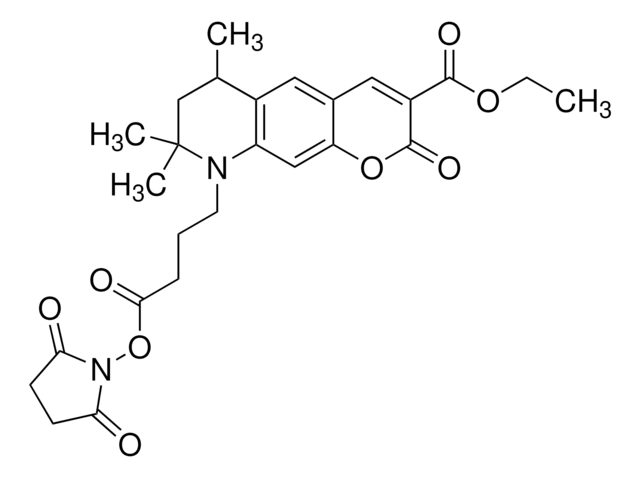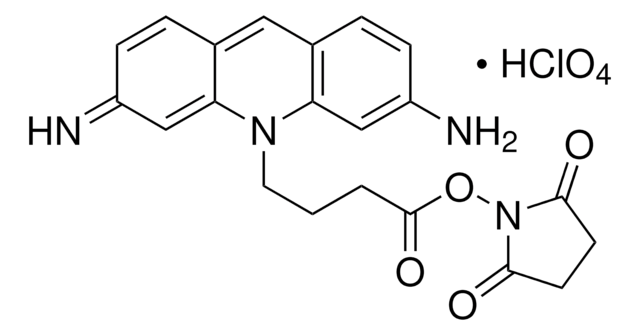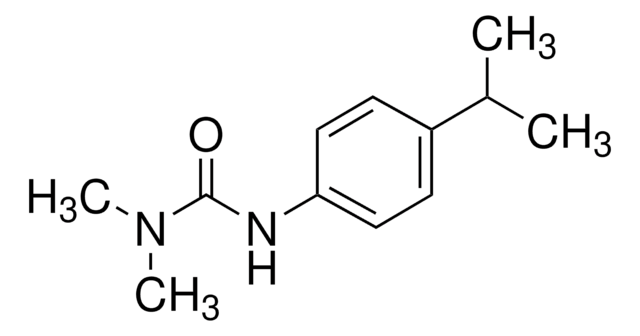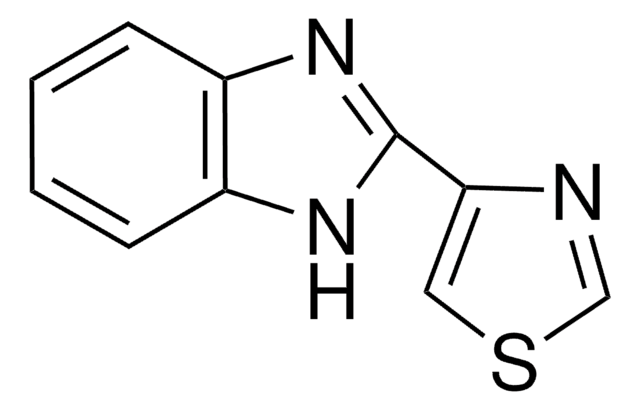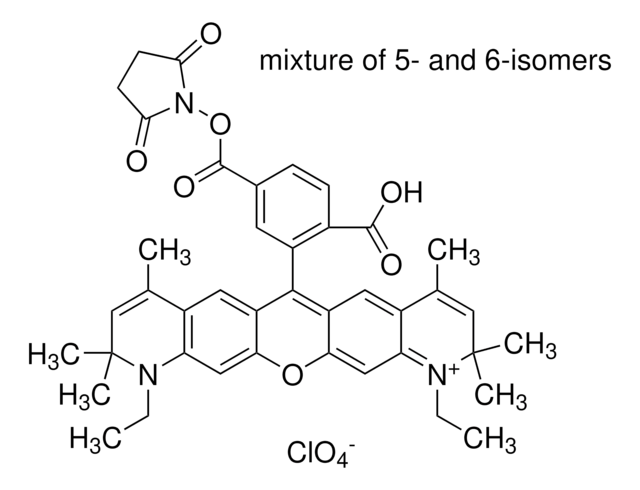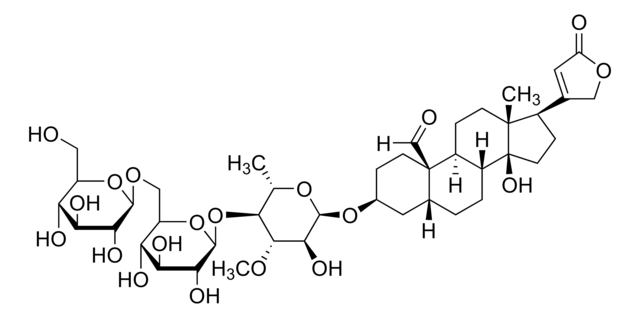56759
Atto 425
BioReagent, suitable for fluorescence
About This Item
Productos recomendados
Línea del producto
BioReagent
Nivel de calidad
Ensayo
≥90% (HPLC)
Formulario
(Report result)
fabricante / nombre comercial
ATTO-TEC GmbH
transmitancia
254 nm, >90%
425 nm, >90%
fluorescencia
λex 440 nm; λem 484 nm
λ
in PBS, pH 7.4
in ethanol (with 0.1% trifluoroacetic acid)
Absorción UV
λ: 423-429 nm Amax
idoneidad
suitable for fluorescence
Condiciones de envío
wet ice
temp. de almacenamiento
−20°C
cadena SMILES
CCOC(=O)C1=Cc2cc3C(C)CC(C)(C)N(CCCC(O)=O)c3cc2OC1=O
InChI
1S/C22H27NO6/c1-5-28-20(26)16-10-14-9-15-13(2)12-22(3,4)23(8-6-7-19(24)25)17(15)11-18(14)29-21(16)27/h9-11,13H,5-8,12H2,1-4H3,(H,24,25)
Clave InChI
WNDDWSAHNYBXKY-UHFFFAOYSA-N
Aplicación
Información legal
¿No encuentra el producto adecuado?
Pruebe nuestro Herramienta de selección de productos.
Código de clase de almacenamiento
11 - Combustible Solids
Punto de inflamabilidad (°F)
Not applicable
Punto de inflamabilidad (°C)
Not applicable
Elija entre una de las versiones más recientes:
¿Ya tiene este producto?
Encuentre la documentación para los productos que ha comprado recientemente en la Biblioteca de documentos.
Los clientes también vieron
Nuestro equipo de científicos tiene experiencia en todas las áreas de investigación: Ciencias de la vida, Ciencia de los materiales, Síntesis química, Cromatografía, Analítica y muchas otras.
Póngase en contacto con el Servicio técnico